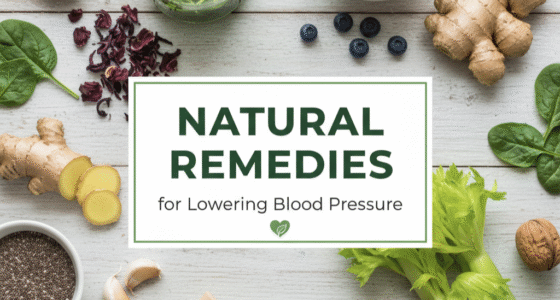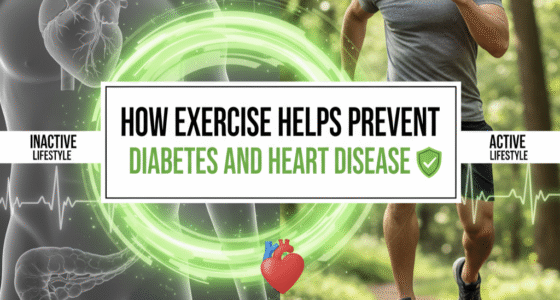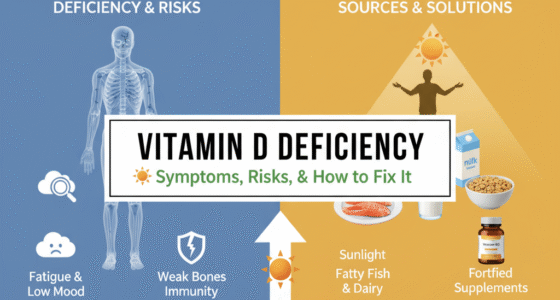Omega-3 fatty acids are essential nutrients that play a critical role in your overall health. Since your body cannot produce them on its own, you must get omega-3s from food or supplements. These healthy fats have been studied extensively and are known for their positive effects on the brain, heart, joints, skin, and even mental well-being. In this article, we’ll break down the many science-backed benefits of omega-3s, the best sources, and how much you really need to thrive in 2025 and beyond.
What Are Omega-3 Fatty Acids?
Omega-3 fatty acids are a type of polyunsaturated fat. There are three main types that are important for human health:
- ALA (Alpha-linolenic acid): Found in plant-based sources such as flaxseeds, chia seeds, walnuts, and canola oil.
- DHA (Docosahexaenoic acid): Primarily found in fatty fish and algae, DHA supports brain and eye health.
- EPA (Eicosapentaenoic acid): Found in fish oil and algae, EPA plays a role in reducing inflammation.
Health Benefits of Omega-3 Fatty Acids
1. Supports Heart Health
Omega-3s are well known for their cardiovascular benefits. They help reduce triglyceride levels, lower blood pressure, improve circulation, and decrease the risk of heart attack and stroke. Studies show that people who consume more omega-3s tend to have healthier arteries and lower inflammation markers.
2. Boosts Brain Function and Mental Health
DHA is a key component of brain tissue, and omega-3s are linked to better memory, learning, and overall cognitive performance. They may also reduce the risk of neurodegenerative diseases such as Alzheimer’s. Additionally, omega-3 supplementation has been shown to improve symptoms of depression and anxiety.
3. Reduces Inflammation
Chronic inflammation is linked to conditions like heart disease, arthritis, and obesity. EPA and DHA are powerful anti-inflammatory agents that help reduce stiffness, swelling, and joint pain. This makes omega-3s especially beneficial for individuals with rheumatoid arthritis or other inflammatory conditions.
4. Improves Eye Health
The retina of your eye contains high levels of DHA. Adequate omega-3 intake can protect against macular degeneration, a leading cause of vision loss. Omega-3s also help maintain moisture in the eyes, reducing symptoms of dry eye syndrome.
5. Enhances Skin Health
Omega-3s help keep your skin supple and hydrated. They regulate oil production, improve elasticity, and may help prevent acne. They also protect the skin from sun damage and premature aging.
6. Supports Pregnancy and Infant Development
Omega-3s, especially DHA, are crucial during pregnancy for fetal brain and eye development. Expectant mothers who consume adequate omega-3s are more likely to support healthy growth and reduce the risk of premature birth.
7. May Aid Weight Management
Omega-3s can help regulate metabolism and support fat burning. Combined with regular exercise and a balanced diet, they may assist in reducing waist circumference and improving body composition.
8. Promotes Better Sleep
Low omega-3 intake has been linked to sleep problems in both children and adults. Supplementing with DHA and EPA may improve sleep quality and help regulate melatonin, the hormone responsible for your sleep cycle.
9. Strengthens Immune System
Omega-3s support immune cell function and help the body fight off infections more efficiently. They play a role in reducing the severity of autoimmune diseases like lupus and multiple sclerosis.
Best Sources of Omega-3 Fatty Acids
- Fatty fish: salmon, mackerel, sardines, trout, tuna
- Seeds: flaxseeds, chia seeds, hemp seeds
- Nuts: walnuts, almonds (small amounts)
- Plant oils: canola oil, flaxseed oil
- Algae-based supplements (great for vegans)
- Fish oil supplements
How Much Omega-3 Do You Need?
Recommended intake varies depending on age, gender, and health goals. Generally, experts suggest:
- Healthy adults: At least 250–500 mg of combined DHA and EPA per day.
- Pregnant and breastfeeding women: At least 300–600 mg of DHA per day.
- People with heart conditions: Higher doses (up to 1,000 mg) may be recommended by doctors.
Omega-3 Deficiency Symptoms
A lack of omega-3s can cause health issues such as:
- Fatigue and poor concentration
- Dry skin and brittle nails
- Joint pain and stiffness
- Depression and mood swings
- Vision problems
Are Omega-3 Supplements Safe?
Omega-3 supplements are generally safe for most people. However, high doses may increase bleeding risk or interact with medications like blood thinners. Always consult your doctor before taking supplements, especially if you are pregnant, nursing, or managing a medical condition.
Conclusion
Omega-3 fatty acids are essential for optimal health, supporting the brain, heart, skin, and immune system. Whether you get them from food sources like fatty fish and seeds or from supplements, adding omega-3s to your diet can make a major difference in your long-term well-being. Making it a daily habit ensures your body gets the nutrition it needs to perform at its best, from mental sharpness to physical strength.









